January 8th, 2024
Dragon Element Ushers in the New Year,
Writing a New Chapter of "China-Thailand Family Ties"
(From chinareport.com, Correspondent Geng Ling) At the beginning of 2024, at the invitation of multiple Thai institutions, Xiao Wunan, Vice Chairman of the China Association of Social Economic and Cultural Exchanges and Executive Vice Chairman of the Asia Pacific Exchange & Cooperation Foundation (APECF), along with Wu Luo Hai, Ambassador for Sino-Foreign Intangible Cultural Heritage Exchange and founder of the Xinbuluo Group, visited Thailand to engage in extensive discussions on bilateral cultural exchanges, yielding fruitful outcomes. During the visit, Xiao Wunan met with former Thai Prime Minister Somchai Wongsawat at Wat Phra That Doi Suthep, where both sides highlighted cultural exchange as a vital measure to elevate China-Thailand relations.
Notably, Xiao Wunan’s first overseas trip of the new year featured the presentation of a calligraphic artwork of the Chinese character “龙” (Dragon) by Master Daojian, Abbot of Chongqing’s Huayan Temple, to Thai dignitaries. This gesture continues the international cultural campaign launched in 2023, where the character “福” (Blessing) was gifted globally. Such initiatives are expected to draw significant international attention.
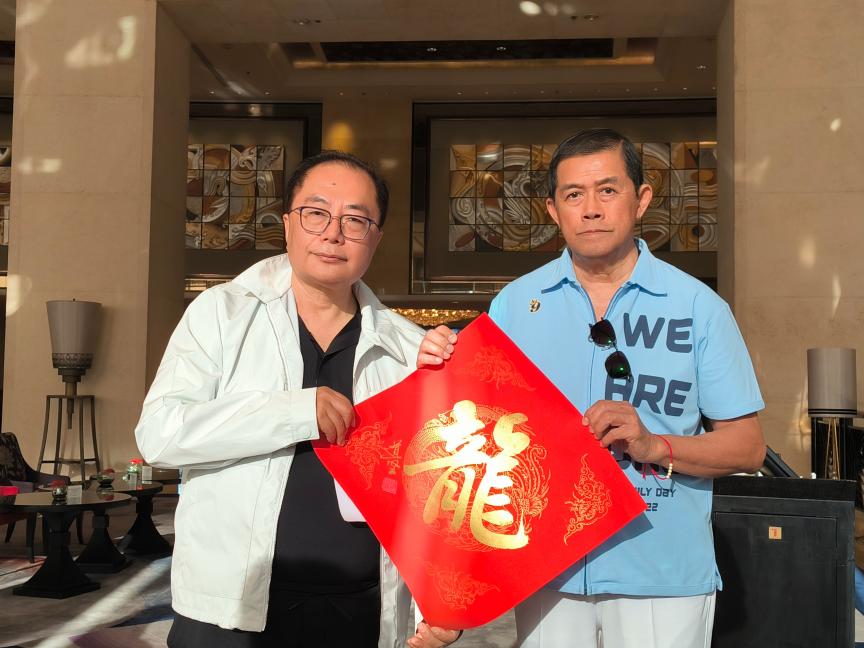
APECF Executive Vice Chairman Xiao Wunan (right) presents the “Dragon” calligraphy to Korn Dabbaransi (left), former Deputy Prime Minister of Thailand and President of the Thai-Chinese Friendship Association
On the afternoon of January 1, as arranged by Thai authorities, Korn Dabbaransi, former Deputy Prime Minister of Thailand and President of the Thai-Chinese Friendship Association, met with Xiao Wunan’s delegation at the Shangri-La Hotel in Bangkok. Korn Dabbaransi expressed gratitude for Xiao’s choice to visit Thailand as his first destination of the year, emphasizing the symbolic significance of gathering with the Chinese delegation on New Year’s Day. He also extended heartfelt wishes for the upcoming Chinese Lunar Year of the Dragon. Reflecting on decades of fostering China-Thailand ties, Korn Dabbaransi underscored that the foundation of “China-Thailand family ties” lies in shared historical, cultural, and ancestral bonds. He stressed that cultural exchange will play an increasingly proactive role in bilateral relations.
Xiao Wunan thanked Korn Dabbaransi for his Lunar New Year greetings and presented him with the “Loong” calligraphy by Master Daojian from Chongqing Huayan Temple. Xiao Wunan noted that during the Beijing International Design Week in September 2023, the “Dragon” character was globally unveiled as the 2024 “Character of the Year” by APECF and partner institutions. The presentation in Thailand forms part of the Global Chinese Character Cultural and Creative Competition. “The Chinese Loong symbolizes the Chinese nation and has traditionally embodied auspiciousness,” Xiao remarked. He added that China’s Loong culture, with its profound philosophical, religious, and ethical significance, represents the essence of traditional Chinese heritage.
Starting March 1st, China and Thailand will implement a mutual visa exemption policy. Xiao Wunan believes this will further elevate bilateral cultural exchanges.
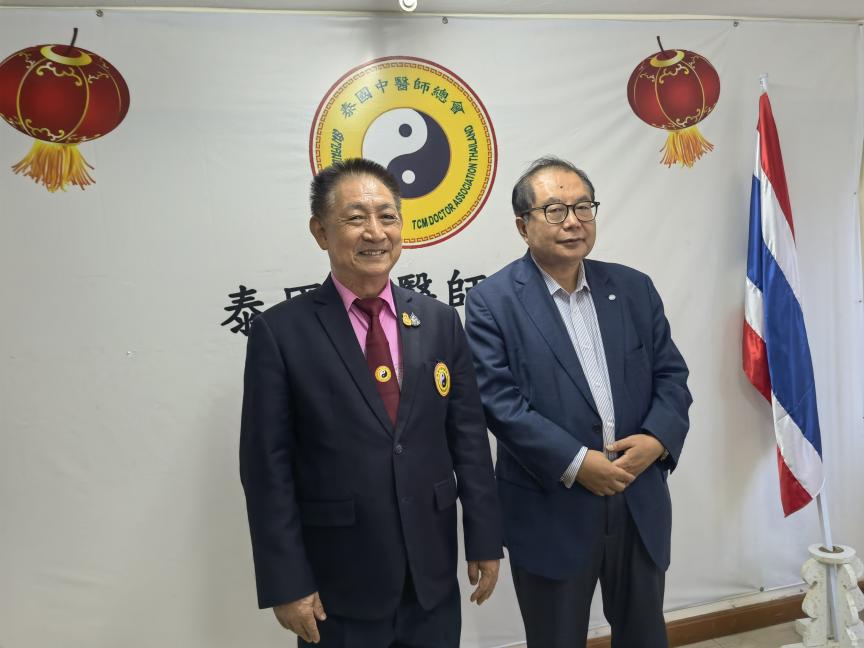
APECF Executive Vice Chairman Xiao Wunan (right) poses with Lin Danqian (left), President of the TCM Doctor Association Thailand
The delegation also met with Hanna Wu, Vice President of the Thai-Chinese Economy Association, and other pro-China figures to discuss enhancing cultural cooperation. During their late-2023 visit, Xiao’s team explored advancing traditional Chinese medicine (TCM) in Thailand and deepening collaboration with the Thai Traditional Chinese Medicine Association. They view TCM cooperation as a catalyst for new mechanisms and platforms in China-Thailand cultural exchange.
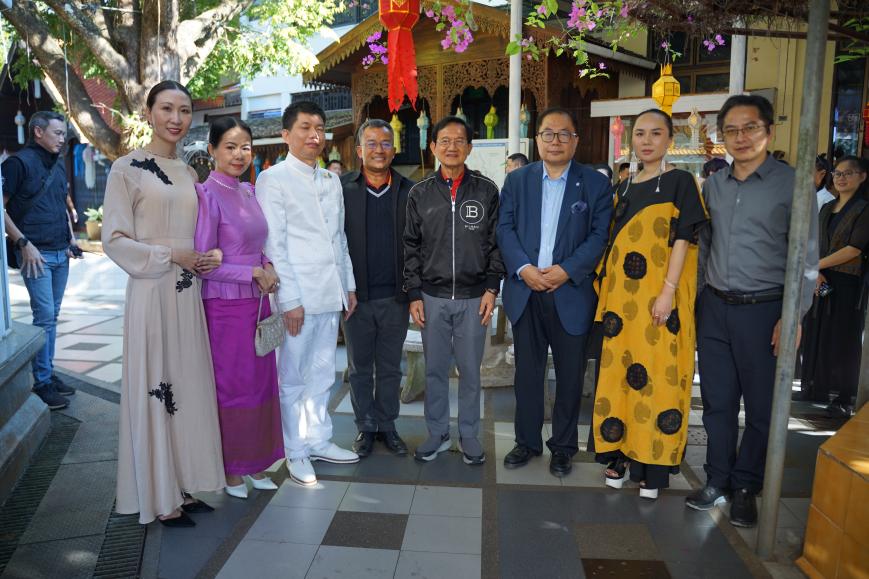
APECF Executive Vice Chairman Xiao Wunan (third from right) with former Thai Prime Minister Somchai Wongsawat (fourth from right) and Ambassador for Sino-Foreign Intangible Cultural Heritage Exchange Wu Luo Hai (second from right) at Wat Phra That Doi Suthep
On January 2nd, the delegation visited Chiang Mai, Thailand’s second-largest city, and met with Phra Thep Warositthajarn, Abbot of Wat Phra That Doi Suthep. Abbot Phra Thep Warositthajarn has long dedicated himself to China-Thailand cultural exchanges through Buddhism, making the temple a symbol of people-to-people friendship between the two nations. Successive Chinese national leaders have visited Wat Phra That Doi Suthep, and Chinese devotees have presented Buddha statues to the temple. During the meeting, Abbot Phra Thep Warositthajarn told Xiao Wunan that the temple is willing to present a Buddha statue to China to further strengthen Buddhist cultural exchanges. According to public media reports, Xiao Wunan has accompanied Chinese Buddhist delegations to Thailand since 1995 and has attended numerous Buddhist exchange activities, including leading annual delegations to the Vesak Festival and events hosted by Chulalongkorn University. Xiao Wunan noted: "China and Thailand share deep cultural ties, with Buddhism serving as a vital bridge. Through this connection, we can deepen mutual understanding and cultural identity between our peoples."
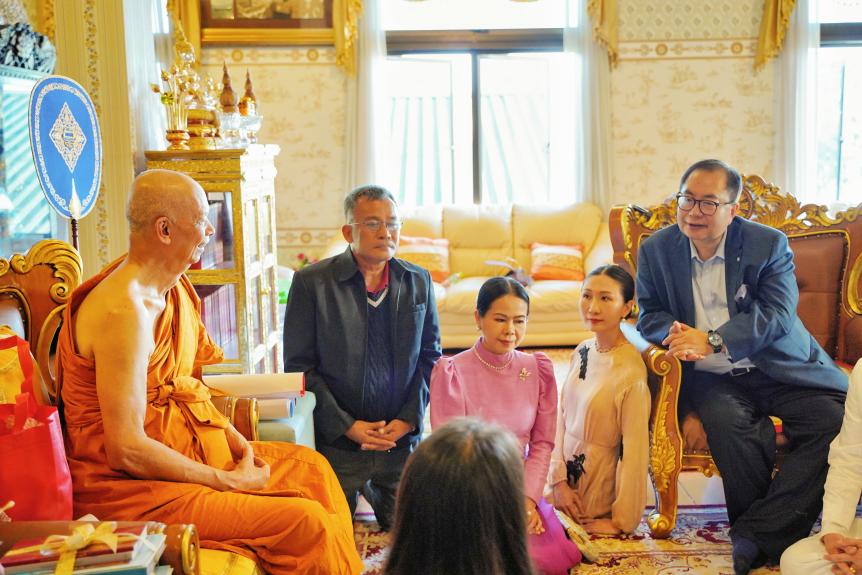
APECF Executive Vice Chairman Xiao Wunan (first from right), Tessa Dankan (second from left), retired four-star Thai Army General, and Abbot Phra Thep Warositthajarn (first from left) in discussions
During their Chiang Mai visit, Xiao and former Thai Prime Minister Somchai Wongsawat reaffirmed the role of cultural exchange in advancing bilateral relations. Guo Lisheng, Advisor to Thailand’s Ministry of Culture and former Chairman of the Thai Parliament’s Foreign Affairs Committee, accompanied the delegation. He recalled a Beijing visit over a decade ago, where Xiao Wunan hosted a symposium and dinner reception for Thai parliamentarians to discuss legislative contributions to China-Thailand friendship. The phrase “China-Thailand family ties,” often cited today, stems from decades of dedication by governments, parliaments, political parties, and societies across both nations.

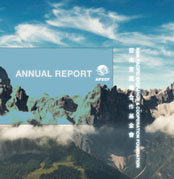
 Back
Back